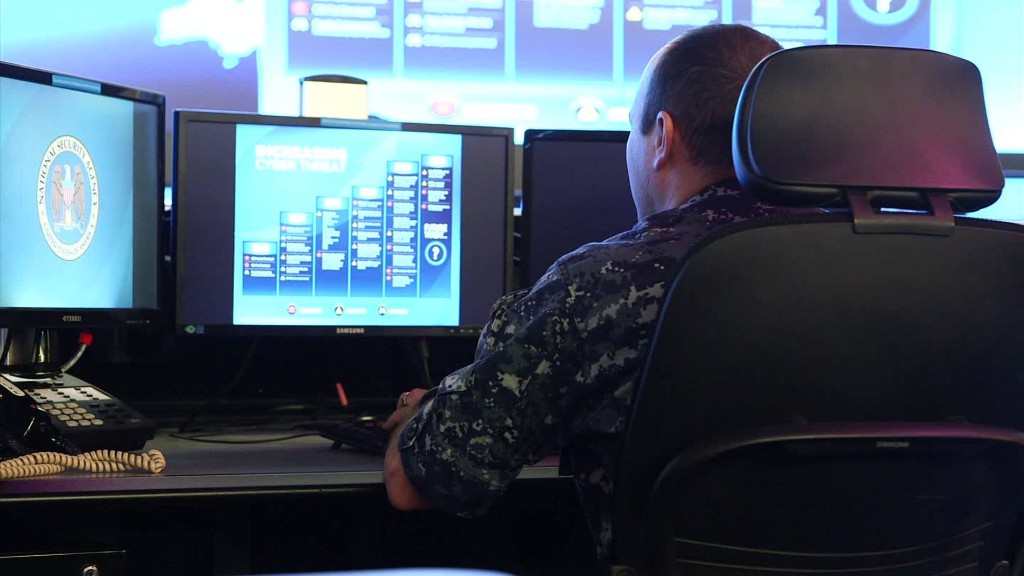
Police everywhere are having a hard time keeping track of terrorists, because modern phones make it easier than ever to communicate privately.
Investigators of the recent Paris attacks told CNN that the terrorists used encrypted apps, including WhatsApp and Telegram to hide plotting for the attacks.
1. Technology companies are increasingly using encryption to protect your data.
By translating your messages and private information into a string of seemingly random letters and numbers, encryption keeps your data out of the watchful eyes of hackers and government data collectors.
2. Terrorists are using encryption to "go dark."
When ISIS spots a possible recruit, they move conversations to direct person-to-person chatting apps that encrypt messages. Police can't monitor those messages.
3. Phones themselves are locked with encryption.
Apple and Google (GOOGL) are encrypting data stored on iPhones and Android phones. When police obtain a suspect's or victim's device, police have a difficult time breaking in if the phone is locked with a passcode.
4. That makes evidence seizure difficult for law enforcement.
Traditionally, police obtain a court-ordered search warrant to seize evidence. Then they approach a tech company and demand to see a customer's information. But those court orders are increasingly worthless because many tech companies no longer hold the encryption keys -- they couldn't unlock their customers' data, even if they wanted to.
5. You control your own encryption keys.
Instead, customers have the keys, in the form of a smartphone passcode. Only you can unlock your iPhone -- Apple doesn't know or store your password.
6. Law enforcement still demands access.
FBI Director James Comey wants tech companies to figure out a way to let in police anyway. Comey suggests Apple (AAPL), Microsoft (MSFT) and others design "doors" into products with a second set of keys for law enforcement.
7. The tech industry and experts say those doors are a bad idea
The world's top cryptographers issued a joint statement in July, calling the FBI's attempts "mandating insecurity." They describe this in binary terms: either data is secured against everyone -- or it's not. 48 companies and 37 civil society groups took a similar stand, worrying that hackers could exploit those doors.
8. Government can't regulate encryption anyway.
Encryption is software that's easy to replicate and share. Much of it is free. Even if law enforcement got the extra access it seeks, terrorists and criminals could just use software or devices made outside the United States. Terrorists acquire illegal assault rifles. They'll get encryption too.

